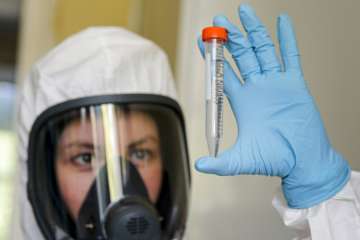So Russia has officially become the first country to register the world's first coronavirus vaccine. President Vladimir Putin himself endorsed the vaccine when he came out in the open and said that the vaccine was safe to use and that one of his daughters had already been vaccinated. Russian Health Minister Mikhail Murashko has said that the first Russian vaccine against the coronavirus will begin to be produced at two sites —Gamaleya Research Institute and the company Binnopharm. The Russians have named their vaccine — Sputnik V — a name that has been of some prominence in the Russian/ Soviet Union’s history.
So What does the word Sputnik mean?
Sputnik or спутник literally means 'fellow traveller', but has held a special place in Russian history. Sputnik was the first-ever artificial Earth satellite launched mankind. The Soviet Union launched it into an elliptical low Earth orbit on 4 October 1957. At the time, Sputnik was an invention way ahead of its time and had left the USSR’s then adversary USA in a state of shock. Sputnik gave birth to the space age. The successful launch shocked the world, giving the former Soviet Union the distinction of putting the first human-made object into space. The word 'Sputnik' originally meant 'fellow traveler,' but has become synonymous with 'satellite' in modern Russian.
This historic image shows a technician putting the finishing touches on Sputnik 1, humanity's first artificial satellite. The pressurized sphere made of aluminum alloy had five primary scientific objectives: Test the method of placing an artificial satellite into Earth orbit; provide information on the density of the atmosphere by calculating its lifetime in orbit; test radio and optical methods of orbital tracking; determine the effects of radio wave propagation though the atmosphere; and, check principles of pressurization used on the satellites.
Historic Sputnik satellite image
When will Russia's coronavirus vaccine be available in other countries
Since many scientists and researchers are skeptical of the newly developed vaccine, they are off the opinion that without complete phase 3 trial results which takes months to get completed, doubt remains whether the vaccine will satisfy all the parameters. Therefore, intially availibility of the vaccine outside Russia may not take place initially.
The UK has already said that it will not use Russia's coronavirus vaccine at this stage. Several other nations will also first study the results of coronavirus vaccine in Russia and only after that may take a decision to use it.

